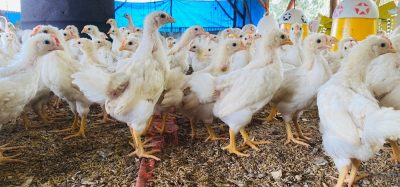ESSNA responds to Channel 4’s Joe Wicks documentary on ultra-processed foods
Posted: 8 October 2025 | Ian Westcott | No comments yet
ESSNA has responded to Channel 4’s Joe Wicks: Licensed to Kill, warning that not all processed foods are harmful. The documentary, which features Wicks’ “Killer Bar,” has sparked debate over ultra-processed foods. Experts say broad labels like NOVA can mislead consumers, and evidence-based, ingredient-level analysis is needed to assess real health impacts.


Joe Wicks of his Channel 4 documentary Licensed to Kill, which sparked debate over ultra-processed foods and their role in nutrition. Credit: Channel 4.
In response to Channel 4’s Joe Wicks: Licensed to Kill documentary which took aim at ultra-processed foods, the European Specialist Sports Nutrition Alliance (ESSNA) has issued a statement cautioning against broad claims that all processed foods are harmful.
ESSNA’s position
ESSNA acknowledged that consumers are rightly concerned about what goes into their bodies but warned that not all processed foods are nutritionally equal. The organisation criticised classification systems such as NOVA, which group diverse products – ranging from packaged bread to confectionery – under one label, creating potential confusion.
Not all processed foods are nutritionally equal – broad classifications risk oversimplifying the debate and overlooking nutritional nuance.”
The alliance stressed that many sports nutrition products are formulated to support balanced diets and provide essential nutrients. It added that observational studies often cited in UPF research cannot establish causation, a limitation also noted by the UK’s Scientific Advisory Committee on Nutrition (SACN).
Join our free webinar: Rethinking Listeria monitoring: faster, simpler solutions for food safety & environmental testing
Discover how modern Listeria monitoring solutions can support faster, more reliable food and environmental testing, and help elevate your laboratory’s efficiency and confidence in results.
Date: 18 March 2026 | Time: 15:00 GMT
ESSNA also emphasised that all ingredients and additives on the UK market are rigorously regulated by the Food Standards Agency (FSA) and/or the European Food Safety Authority (EFSA). Health and nutrition claims can only be made when scientifically substantiated under EU and UK legislation.
What is NOVA?
The NOVA classification system, developed in Brazil in 2009, categorises foods based on the extent and purpose of industrial processing. While it has helped highlight the benefits of consuming more whole and minimally processed foods, its broad categories can overgeneralise, grouping nutritionally diverse products together.
Expert perspective from Campden BRI forum
ESSNA’s response calls back to points raised at the March IFST & Campden BRI Forum: Reformulation of Processed Food – Perceptions, Realities and Balance. Lewis Wallis, Regulatory and Nutrition Advisor at Campden BRI, explained that consumers often struggle to accurately apply UPF classifications like NOVA. He highlighted that researchers often use broad product categories rather than ingredient-level data, which may overlook nutritional nuance.
Wallis also discussed approaches to integrate processing markers into nutrient profiling models, or add nutrient thresholds to processing classifications, to better reflect health impacts. He called for balance: recognising both the necessity of some processing and potential risks, using evidence-based classification, and incorporating ingredient-level metrics alongside nutrient profiling.
Why it matters
Frameworks like NOVA have helped raise awareness of the benefits of more whole and minimally processed foods. At the same time, their broad categories can overgeneralise, potentially overstating risks. Media portrayals that present all processed foods as harmful risk oversimplifying the debate, influencing consumer behaviour, and shaping policy and industry decisions. ESSNA’s response, alongside expert discussion at the Campden BRI forum, underscores the need for a nuanced conversation that supports evidence-based classification while encouraging balanced diets.
Related topics
Health & Nutrition, New product development (NPD), Obesity, retail, The consumer
Related organisations
Campden BRI, Channel 4, European Food Safety Authority, European Specialist Sports Nutrition Alliance, Food Standards Agency, Institute of Food Science and Technology, UK Scientific Advisory Committee on Nutrition









